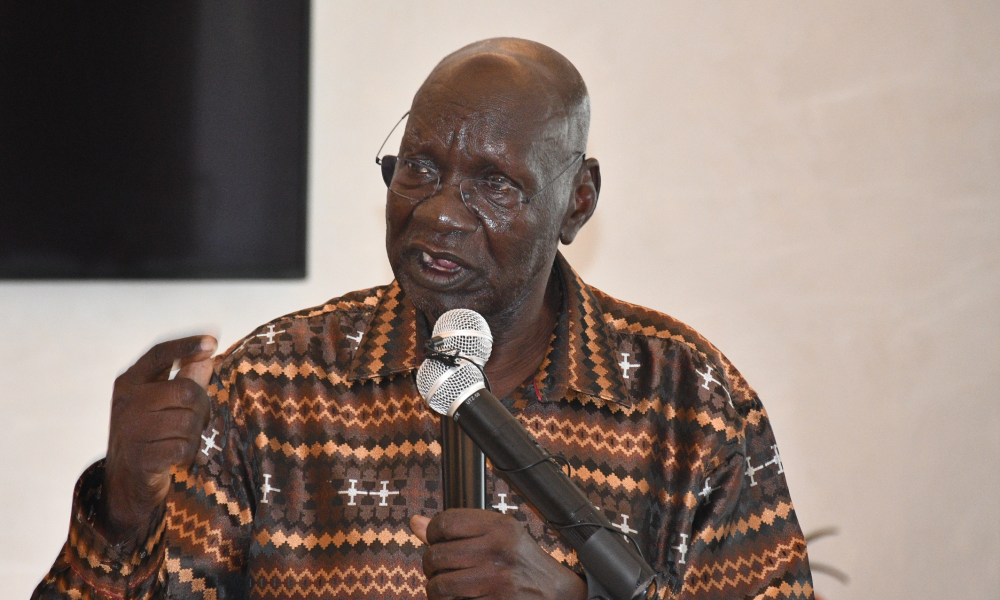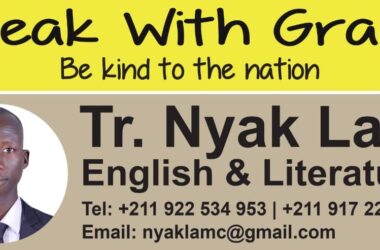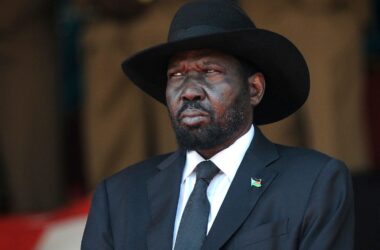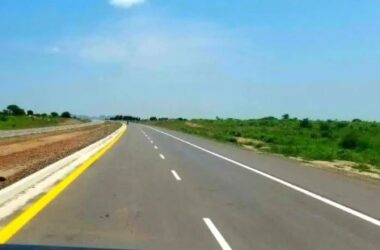By Mamer Abraham
Some senior politicians in the country have warned against divisive politics, saying it is harmful to the unity and prosperity of South Sudan.
They were speaking at the launch of the memoir of the former minister for finance, Arthur Akuien Chol, yesterday.
Daniel Awet Akot, a senior SPLM party member, called upon citizens to have unity of purpose, warning that if the people are fragmented, there could be high chances of second imperialism as many neighboring countries are flocking to the country.
“So, let us always hope that books will be written, or history will be written, but be written with care. The world is not good. The wars that are now going on are wars that come out in a very short time and destroy very badly,” Awet stated.
He also warned against extreme writing in books that might plunge the country back into violence.
“There’s a unity of purpose for us Southerners; we have to maintain it; that’s why we fought for 21 years without money. So, let us work with unity of purpose. This war we fought for 21 years without money; this war we are entering again,” Awet cautioned.
He added that the country must endeavor to ensure that the conflict in neighboring Sudan ends.
“So, let us work for peace in Sudan so that Sudan will be at peace because if they are peaceful, we are safe. We have a problem, so let us pray for that problem so that it ends,” he continued.
Hussein Abdelbagi Akol, the vice president of the service cluster, stressed the need for a research center to be established to document some history that was already missing in the current history of South Sudan.
The vice president said many South Sudanese did not join the movement during the liberation struggle due to some reasons that can be uncovered in the history that is yet to be written.
“Even though what was said was good, the history is in the books now and is in the learning institutions, written by the foreigners. Even among ourselves, the differences we have, why do we ought to have differences among ourselves?” Abdelbagi queried.
“There are reasons why some of us didn’t join the movement; there are reasons that are not known by others. If we collect the history, we will find answers to the war propaganda, allegations, and other people.” He noted.
Aldo Ajou, another senior member of the SPLM, also stated that the distinction among South Sudanese was not important for nation-building.
Aldo narrated how they contributed to the liberation struggle while in Sudan by providing documents to the SPLM through Arthur Akuien Chol, whom they had sent to Egypt for that purpose.
“He (Arthur) was also part of us, and we worked together. It is not like this now, where there are generals who are very important and there are others who are less important,” Aldo explained the contribution of South Sudanese who were in Sudan during the liberation struggle.
“All of us, what we did with Arthur We decided to dispatch Arthur to Egypt in order to work in Khartoum and get documents through Arthur to the SPLA. This is history. And you will not believe if we tell you that in the deal to divide this country, we were involved inside.”
He argued that the available knowledge of South Sudanese elites must be put to use for the betterment of the country.
South Sudan attained independence in July 2011 after the citizens voted 99 percent for secession from Sudan to end bloodshed.
However, the country has been seeing notable instability with numerous rebellions, including the 2013 and 2016 disagreements that led to bloodshed and finally ended in the current revitalized agreement on the resolution of conflict in South Sudan.
It is now nearly 14 months left for the country to hold its first-ever election in December 2024 and to smoothly end the transitional period on February 25, 2025, to ensure a democratically elected government is installed.




